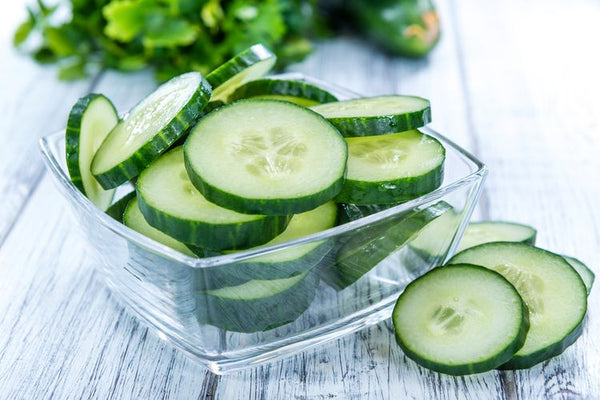
How Important Are the Benefits of Riboflavin for Children?

Each vitamin and mineral performs an important function in the body. Children continue to grow and develop.
During this process, calculating every necessary vitamin and mineral is very important. Deficiency, although rare, can cause significant problems later in life.
Riboflavin is one of the many vitamins that children need to grow and develop. Here's what to know about a child's daily dose requirements for riboflavin and how to ensure their needs are met.
Read: Benefits, Functions and Food Sources of vitamin B2
What is Riboflavin?

Riboflavin is the official name for vitamin B2. Because riboflavin is water-soluble, the body stores it in very limited amounts. Riboflavin must be digested enough each day to perform the necessary functions.
The body uses the daily allowance of riboflavin to make the enzymes it needs to facilitate several important functions.
Riboflavin is the key to proper growth and development. It also helps the body produce energy, helps red blood cells function, and helps the metabolism to break down and use certain medications.
Functions of Vitamin B
There are 8 B vitamins, and each has a different role in maintaining health and wellness. The daily recommended amount of B vitamins varies from vitamin to vitamin and can vary from person to person.
Women need more B vitamins to promote a healthy pregnancy, including:
- Thiamine (Vitamin B1)
- Riboflavin (Vitamin B2)
- Niacin (Vitamin B3)
- Pantothenic Acid (Vitamin B5)
- Pyridoxine (Vitamin B6)
- Biotin (Vitamin B7)
- Folic Acid (Vitamin B9)
- Cobalamin (Vitamin B12)
Fortified foods often contain many B vitamins in addition to other vitamins and minerals. Always check the nutrition facts on fortified cereals and bread.
How Much Riboflavin Does a Child Need Each Day?
Although riboflavin is very important, medical advice says your child does not need significantly high doses of riboflavin.
Read: 4 Amazing Benefits of B Vitamins For Children
The daily requirements for children are all under 1 mg daily, and this amount increases through adolescence. This is easily achieved through a balanced diet, as riboflavin is often added to foods made for children.
- Birth to 6 months – 0.3 mg daily
- Seven months to 1 year – 0.4 mg daily
- One year to 3 years -- 0.5 mg daily
- Four years to 8 years – 0.6 mg daily
- Nine years to 13 years – 0.9 mg daily
While these recommended daily values are standard advice, you should always ask your child's healthcare provider about your child's unique needs.
While they are unlikely to differ substantially, there may be cases where some children would benefit from additional amounts of certain vitamins and minerals.
What Foods Are High in Riboflavin?
The best source of riboflavin is beef liver. You may not want to accept the idea of serving beef liver to a child because you can feel the pain in your bones.
Most breakfast cereals and bread are fortified with B vitamins, and it's easy for your child to reach the recommended daily value in one serving.
Be careful what comes with those B vitamins. If the cereal is packed with added sugar, the vitamin content may not be beneficial.
Whole grains such as oats and oats and low-fat dairy products are healthy and valuable sources of riboflavin. Many parents are more comfortable with the idea of giving their child fruit with fresh yogurt and chopped oats instead of a bowl of sweet marshmallows.
Cheese, almonds, chicken breasts and eggs also contain high amounts of riboflavin. Most children will be excited to enjoy these foods, and these substances play a role in a healthy balanced diet.
A 3-ounce serving of chicken breast contains 0.2 mg of riboflavin along with the essential amino acids. If you serve it with macaroni and cheese made with fortified pasta, your child will likely meet their daily riboflavin needs in one meal.
Leafy green vegetables like spinach are another good source of riboflavin, as well as magnesium, although young children may not want to eat them.
Can Children Have Riboflavin Deficiency?
It's possible to be deficient in any vitamin or mineral, but you shouldn't assume that your child has a deficiency before consulting a medical professional.
Riboflavin deficiency is relatively rare in developed countries. They are usually caused by one of two factors. Either the child is not getting adequate amounts of riboflavin through their diet, or the child's body has problems utilizing or absorbing the riboflavin they are consuming.
Early research suggests a possible link between riboflavin deficiency and pediatric migraine. Riboflavin is potentially effective as a migraine prevention solution in adults and is currently being investigated for its potential to help children.
If your child has a headache, this situation requires immediate medical intervention. Talk to your child's pediatrician about the potential for eliminating riboflavin supplements.
The only way to identify a deficiency is to talk to your pediatrician. If the pediatrician believes that your child may have a deficiency, appropriate tests will be performed. If supplements are needed, your pediatrician will tell you which supplement in the form is best for your child.
Can You Have Too Much Riboflavin?
Excessive consumption of riboflavin can turn urine a dark orange color. As long as the child is hydrated, this is not a problem. This is simply a result of the natural color of riboflavin being seen in the urine.
Excess riboflavin is very rare, as it is only present in small amounts in the diet. Excessive consumption of riboflavin can cause increased urination or diarrhea.
Meanwhile, prolonged excessive consumption of riboflavin can cause liver damage, but this is not something most parents should be concerned about.
Do not give your child supplements without consulting your pediatrician first.
If a supplement is needed, make sure you don't accidentally double it. If you give your child two supplements that each contain 100% of the daily value of riboflavin, your child will receive double the daily amount of the vitamin.
Always check the label on your supplement and consult a healthcare provider with any questions. Take precautions and watch out for drug interactions if your child is taking supplements. Watch for allergy symptoms, such as swelling of the tongue, throat, or lips.
Gummy vitamins can send the wrong message to children. They often have difficulty understanding the difference between a gummy vitamin and a snack. This can create problems and send the wrong message about what types of food are healthy.
Once-daily chewable multivitamins kept out of reach of children can help change that perception. Make sure you explain to children that vitamins are for their health and not snacks.
Helping Children Meet Their Daily Riboflavin Needs
Most children, including picky eaters, will have no problem with riboflavin.
If so, slowly introduce new riboflavin-rich foods into their diet. Serve these foods little by little, and encourage your child to taste them.
It's important not to make healthy eating feel like a punishment or a chore. If you make it negative with food early on, your child is likely to be reluctant to eat it for years to come.
Let your child experiment with new foods as they are served, and tell them why you like them. Introduce the food as a fun new experience.
If your child refuses food, ask them what they can do to make it taste better. Involve them in preparing food and encourage them to try new ways to eat it. Encourage your child to season food to their taste.
This might mean adding a little honey mustard, a little soy sauce, or a sprinkling of cheese to make things like grilled chicken breasts or scrambled eggs more appealing.
If that's what it takes, it's the perfect compromise. Everyone enjoys eating, and children get adequate amounts of the vitamins and minerals they need. As long as you don't include excess added sugar in your child's diet, there's no harm in doing it.
That's the article How Important Are the Benefits of Riboflavin for Children? May be useful.




